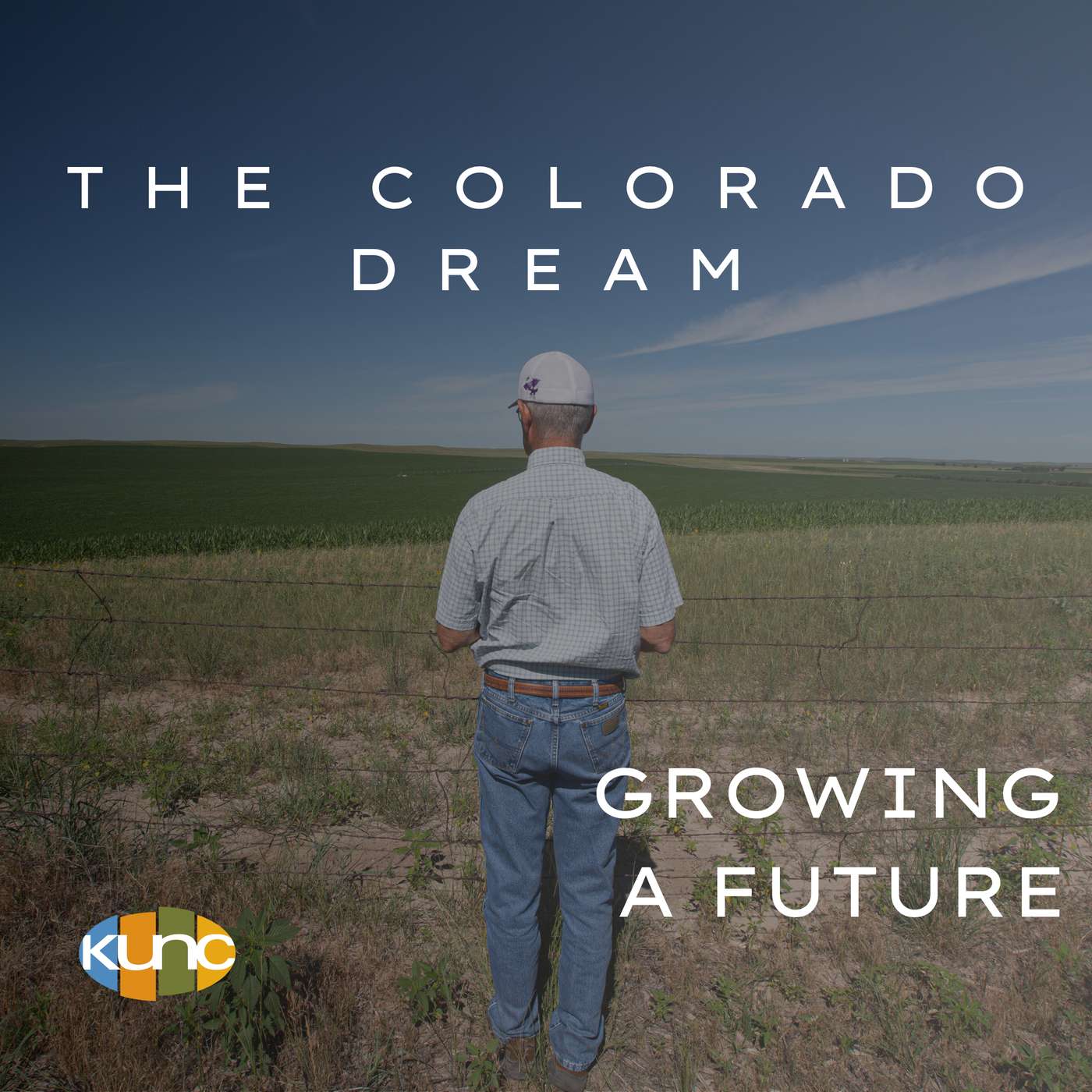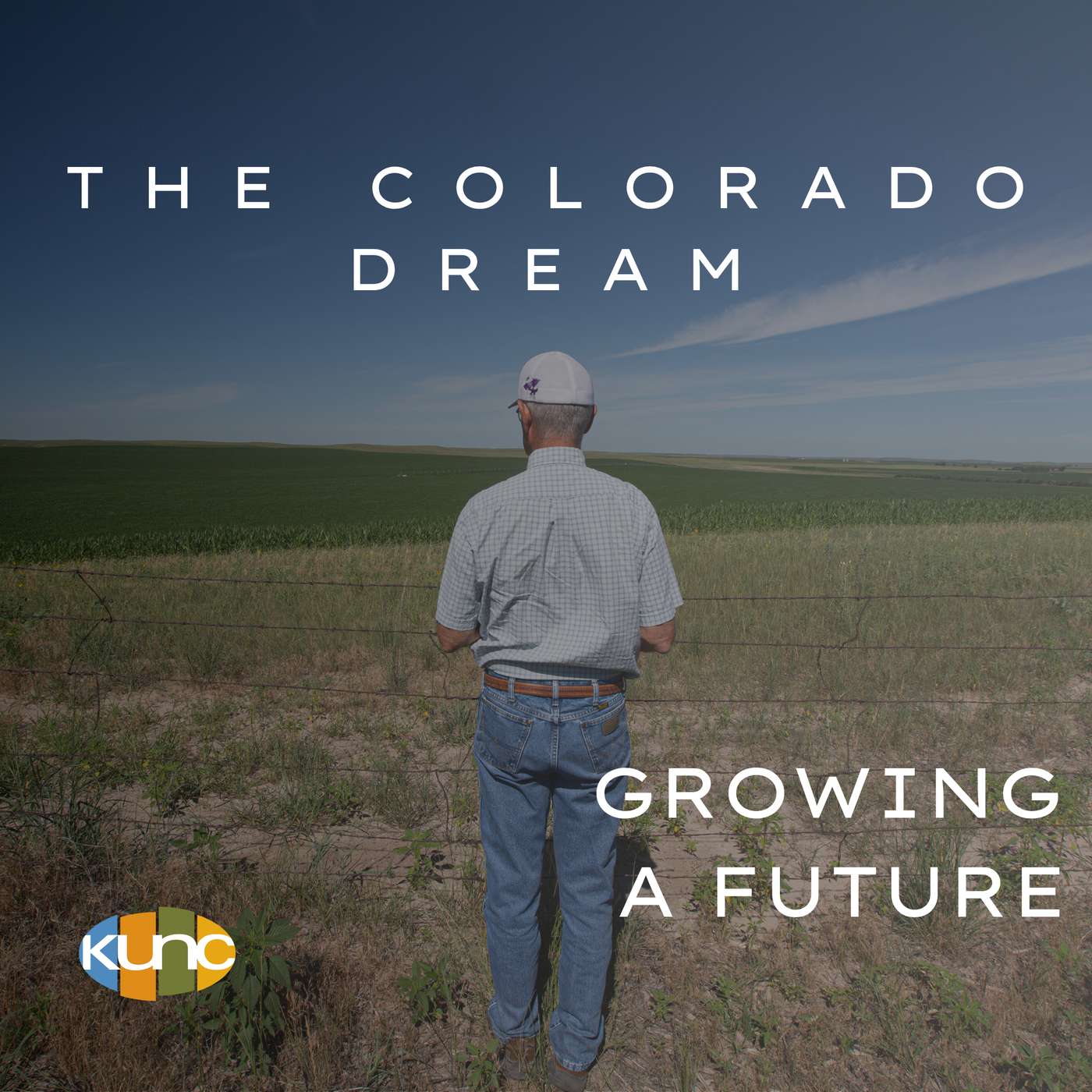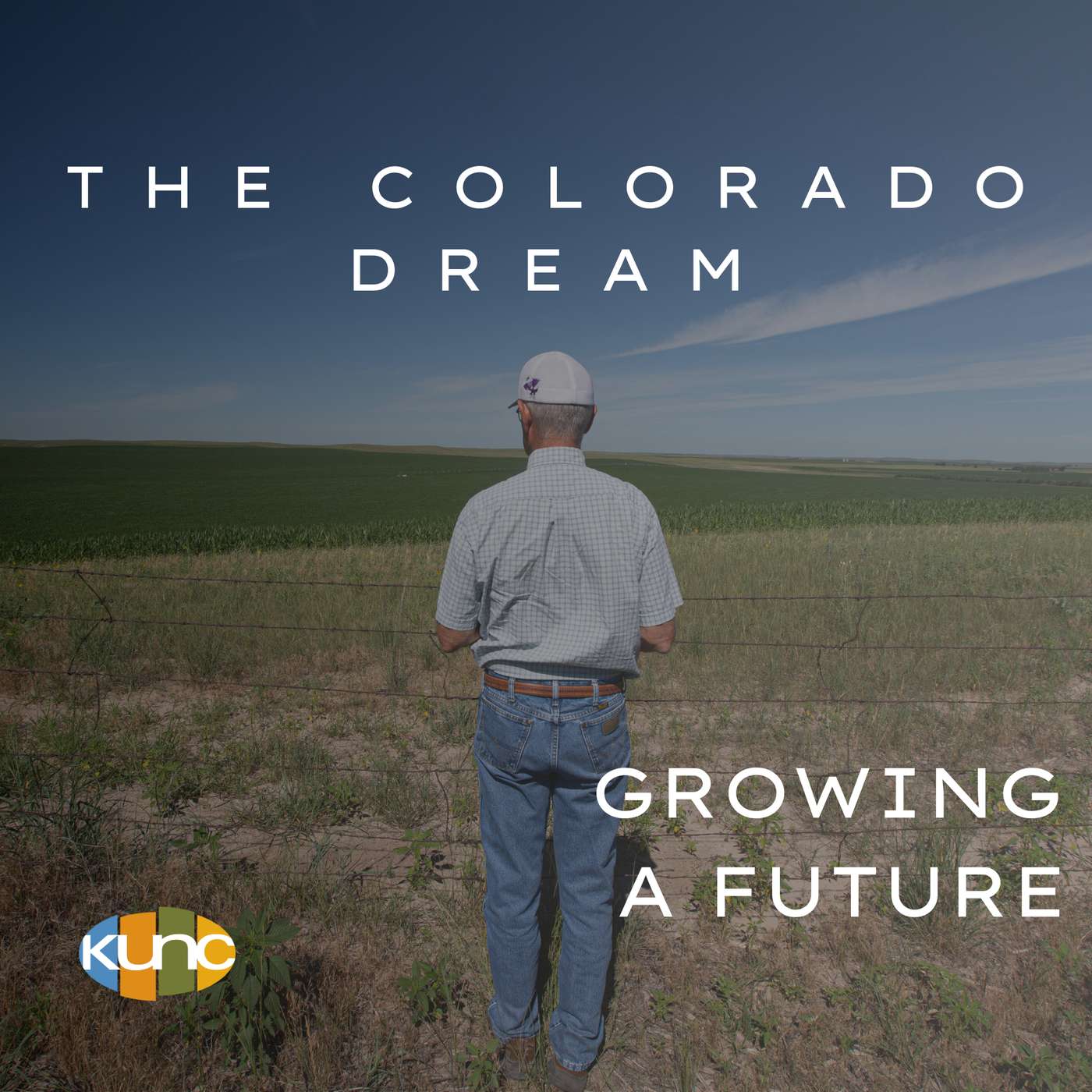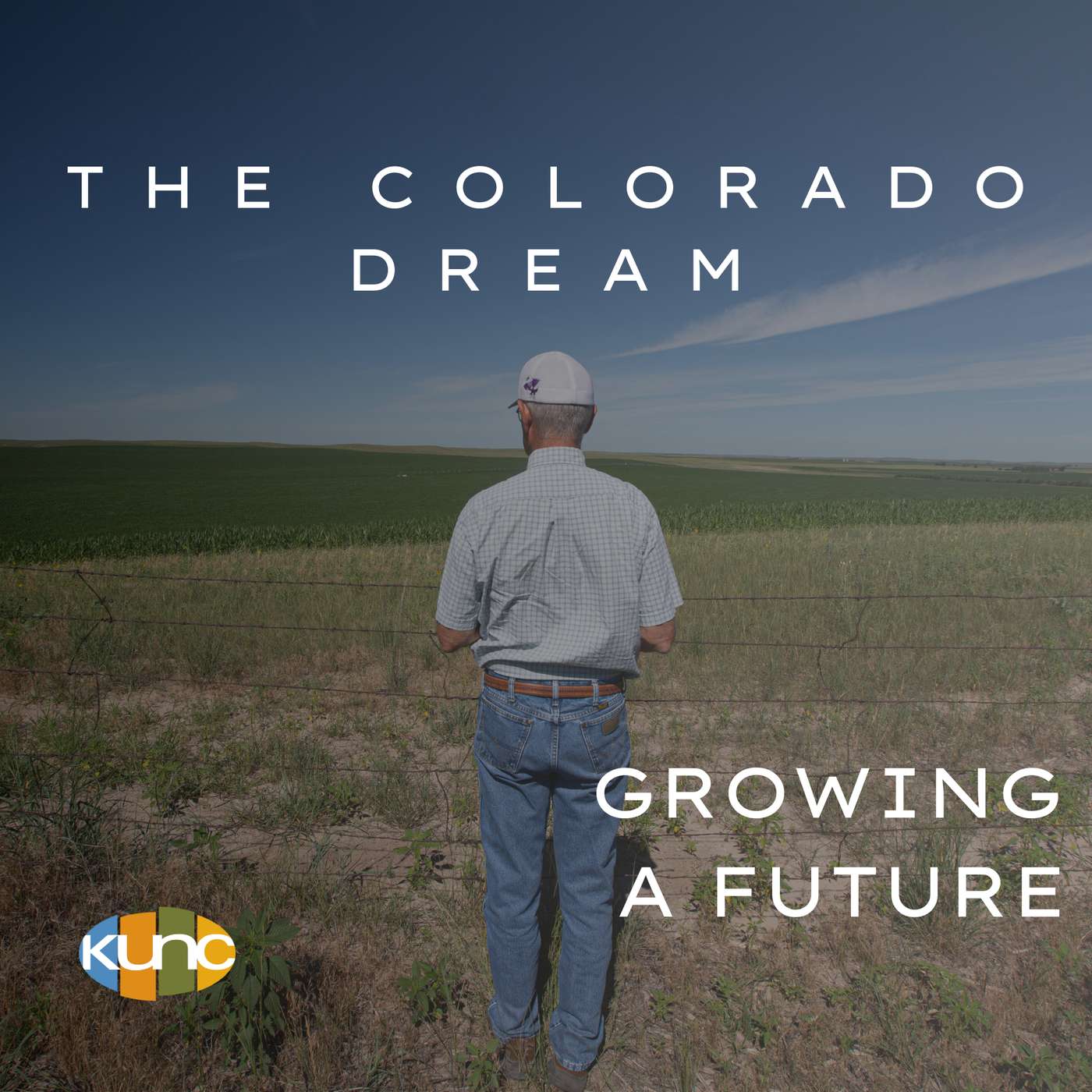Discover The Colorado Dream
The Colorado Dream

33 Episodes
Reverse
One day, a fourth generation of family members will run Lenz Farms on Colorado’s Eastern Plains. They plan to bring back innovative ideas and implement new things to help the farm continue to grow. But will these fresh ideas be enough to offset a shrinking water supply?The Colorado Dream shares stories of Coloradans who are overcoming obstacles to create a better life for themselves and their families in an effort to achieve the American Dream.
Lenz Farms in Yuma County, Colo., was started by a father and his four sons in the 1970s. They created a unique business model that keeps management and ownership in the family. This has allowed Lenz Farms to survive and thrive over the decades, unlike hundreds of thousands of other family farms.
Family farms have been disappearing across the country for decades. From extreme weather to fluctuating crop prices to water scarcity, building a business off the land is hard. But row by row and harvest after harvest, one Eastern Colorado family is bucking that trend. This is their story.
Growing a Future: Family farms have been disappearing across the United States for decades. From extreme weather to fluctuating commodity prices to trade policies, building a business off the land is hard. But one Eastern Colorado family is bucking that trend. This is their story of four generations of farming.The Colorado Dream theme song: Jason PatonBue Dot Sessions track Lahaina
In the final story in our series, “The Colorado Dream: Ending the Hate State,” we ask Colorado Governor Jared Polis, a police chief and a long-time legislative aide: Where does Colorado stand today with the "Hate State" label?
The handling of gender identity in schools is heating up in communities across the country. Many districts have adopted guidelines detailing how to best support transgender and non-binary students, others lack specific procedures. Some schools are facing lawsuits over their handling of this issue. Meanwhile, students continue to explore who they are. This episode focuses on one family's experience managing gender at home and at school.
Since the U.S. Supreme Court overturned Amendment 2 in 1996, Colorado has emerged as a leader for LGBTQ+ rights and laws this includes ensuring transgender and non-binary people have access to the health care they need. Plus a Northern Colorado medical recsidency program is normalizing HIV care in a primary care clinic.
The number of Pride celebrations are growing across Northern Colorado but in some communities it's still a struggle to hold these events. This includes in Weld County where a local librarian - and their friends - took over organizing Greeley Pride after it was cancelled. We also hear from the organizer of another local Pride event. She was harassed and received death threats online after photos of her - and her kids - at a family friendly drag show were posted on a far-right social media account.
Colorado is known as one of the most LGBTQ+ friendly states in the country. But it wasn't always that way. In 1992, voters passed an amendment to the state constitution that labeled Colorado "The Hate State" and sparked a landmark legal battle for gay rights.
Colorado is considered one of the most LGBTQ+ friendly states in the country, but it wasn’t always this accepting. In 1992, Colorado voters approved Amendment 2 which prohibited protections for queer people in the state. Four years later, the Supreme Court overturned the amendment. In the nearly three decades since, Colorado has done a 180 and is now known for its progressive stance on LGBTQ+ rights and laws.This series investigates this dark time in the state’s history and uncovers the activism and legislation that followed. We’ll share the stories of LGBTQ+ people and the allies who want to make the Centennial State a welcoming place for all.
The town of Breckenridge is building a new neighborhood specifically for local workers. But with just 61-units for sale which residents will end up with a home? Plus, Summit County is partnering with the U.S. Forest Service on a first-of-its-kind housing development that’s been 60 years in the making.
Episode 5: A lack of affordable housing is causing a severe staffing crisis in schools in Eagle County, prompting the school district to break into the affordable housing development business.
Steamboat Springs created three different zones to regulate short-term rentals, including a red zone where no new permits for those rentals can be issued. Three people living within that zone share their experiences with how the regulations have shaped their lives.
Steamboat Springs nurse Sanaya Sturm wants to buy a home. She’s put in over a dozen offers but gets outbid by cash offers, or the house she wanted is converted into a short-term rental. Meanwhile, the local housing authority wants to build over 2,000 homes by 2040. Will this plan solve the housing crisis for her and thousands of other residents?
Breckenridge is a little over five square miles. Despite its size, preserving the past is a priority for Breckenridge—the town has 249 Historic District structures and seven historical exhibits and museums. Preservation also is an important part of the town’s plan to curb the housing crisis, now and in the future. One initiative is called Housing Helps, which helped locals Anne and John Lowe buy their dream home. But the town's housing initiatives might not work for everyone.
There is a housing crisis in Colorado’s mountain resort communities And it’s left longtime locals, like 29-year-old Summit County resident Javier Pineda Rosas, unable to find a stable living situation. A recent survey taken by county residents shows just how dire the situation has become. The county will need over 2,300 rental and for-sale units - at all price points - to meet the housing demand. Local officials and employers are working to solve this housing crisis that Pineda Rosas says is “super bad.”
In the newest season of The Colorado Dream, we examine the affordable housing crisis in mountain resort communities where land and inventory are scarce.
Aurora has a large foreign born population and some of them turn to local ethnic media outlets for news and to stay informed about their home countries. There are over three dozen ethnic media organizations that serve the city and the greater metro Denver area. They are print, digital and broadcast outlets that publish in many different languages including English, Spanish, Korean, Chinese and Polish.Vera Azuka Idam started Afrik Digest in 2018, a free magazine and online publication, to bring African people together.“To be their voices, to raise their voices,” she said. “We know what they want. We understand the way to put it that they would understand.”There are hundreds of ethnic media outlets across the country. They face challenges like evolving digital and social media, loss of in-community businesses, an aging audience and lack of bilingual journalists. Fake news is a big issue too. It can stem from a variety of sources like targeted campaigns in communities of color that hope to influence elections to social media platforms like WhatsApp, WeChat and Facebook Groups.One of the biggest challenges in funding.“For those of us who are doing these things alone, maybe that's because we're struggling with, you know, with support and very minimum financial support,” said KETO 93.9 FM founder Endale Getahun.KETO is a multicultural immigrant community radio station that primarily serves African immigrants and refugees. The signal originates in Aurora and has a broadcast radius of 10 miles and also streams online. There are shows and music in English, French and Ethiopian languages like Amharic, Tigrinya and Oromo.Aurora partners with KETO, Afrik Digest and other ethnic media outlets to ensure the different immigrant groups have equal access to information and resources coming from the city.“Networking with others is very helpful because you get to share experience,” said KETO-FM 93.9 founder Endale Getahun who attended the event.“I feel like for many of these communities, they really trust, you know, these ethnic media organizations,” said Ricardo Gambetta, Aurora’s manager of International and Immigrant Affairs. “They know that they want the best for these communities.”Afrik Digest on FacebookAfrik Digest on TwitterAfrik Digest on InstagramAfrik Digest on YouTubeCenter for Community Media at the Craig Newmark Graduate School of Journalism at the City University of New York on social mediaCraig Newmark Graduate School of Journalism at CUNY on FacebookCraig Newmark Graduate School of Journalism at CUNY on Twitter Craig Newmark Graduate School of Journalism at CUNY on YouTubeKETO 93.9 FM on social mediaKETO 93.9 FM on FacebookKETO 93.9 FM on TwitterKETO 93.9 FM on YouTubeCity of Aurora on social mediaCity of Aurora on FacebookCity of Aurora on TwitterCity of Aurora on InstagramThe Colorado Dream: Newcomers Welcome is a production from KUNC. This episode was written and reported by Stephanie Daniel. Editing by Sean Corcoran. This season's theme song was composed by Jason Paton. Jennifer Coombes is the digital editor.
Foreign-born residents have higher rates of entrepreneurship than those born here in the U.S. Aurora supports these business owners as part of its immigrant integration plan. The goal is to increase entrepreneurship by providing information, training and lowering the barriers to entry. There are hundreds of immigrant and refugee owned businesses throughout the city including Msosi Kenyan Cuisine food truck, owned by Kenyan immigrant Josphat Ombacho. In 2016, Ombacho and his wife started a traditional catering business. They sold food at events like Aurora’s Global Fest and Taste of Colorado. Eventually, they decided to buy a food truck but they needed some money.“We went to various banks to see if we can get a loan to buy a food truck because we didn't have enough money,” Ombacho said. “We couldn't get (it) because our credit was low.” After getting turned down at traditional banks they heard about CEDS Finance in Aurora and received a loan from the non-profit, federally-funded, small business lender. “Our mission is all about how do we help refugees create the American dream? And we define that as financial self-sufficiency,” said Alex Wise, CEDS Finance executive director.The nonprofit loans up to 100,000-dollars to clients and doesn’t require a minimum credit score. CEDs is also the only lender in the state that offers an Islamic-compliant loan, an alternative type of financing that adds an administrative fee rather than charging interest.Ethiopian refugee and Aurora resident Ermias Gurmu owns a small trucking business called Line Trucking. He hauls food across the country for big chain stores like Wal-Mart and King Soopers. He’s on his second CEDS loan and is one of more than 300 entrepreneurs the lender has supported.“I'm planning to get more trucks and to have some more employees to expand my company,” Gurmu said.Credits: The Colorado Dream: Newcomers Welcome is a production from KUNC. This episode was written and reported by Stephanie Daniel. Editing by Sean Corcoran. This season's theme song was composed by Jason Paton. Jennifer Coombes is the digital editor.








